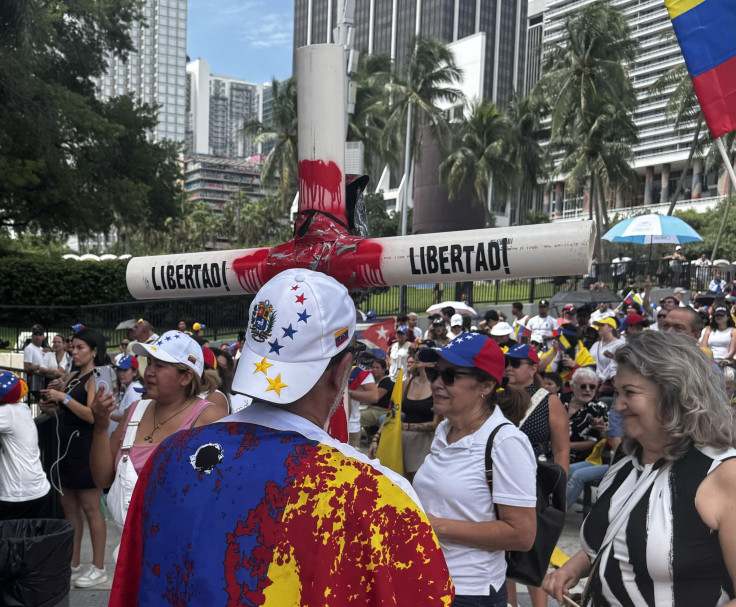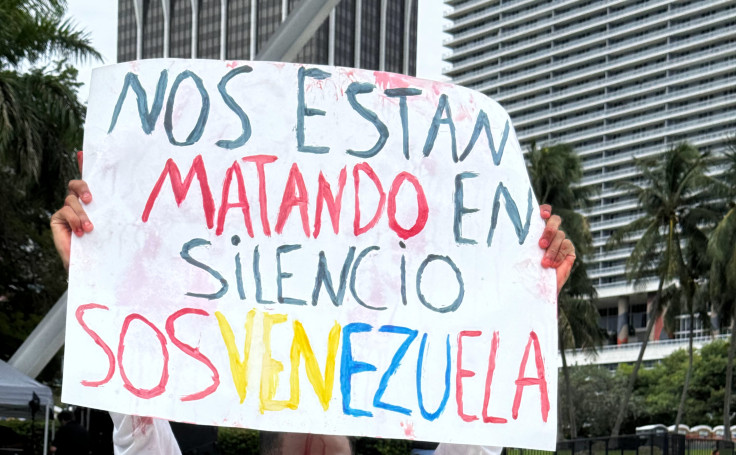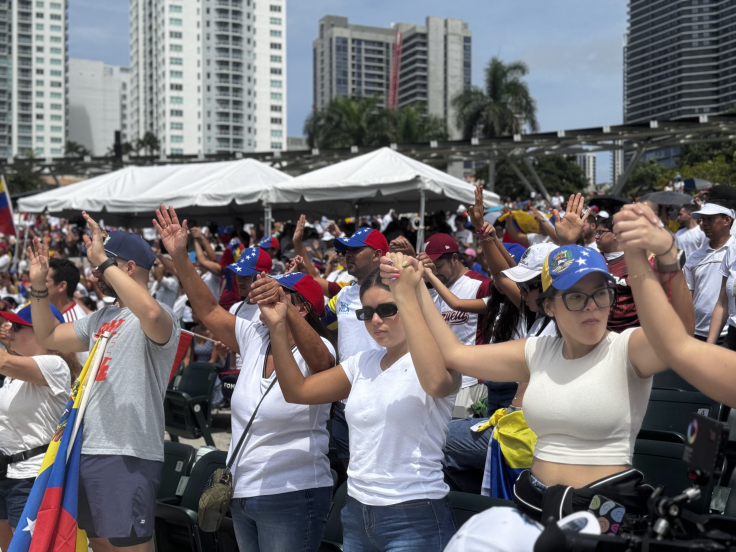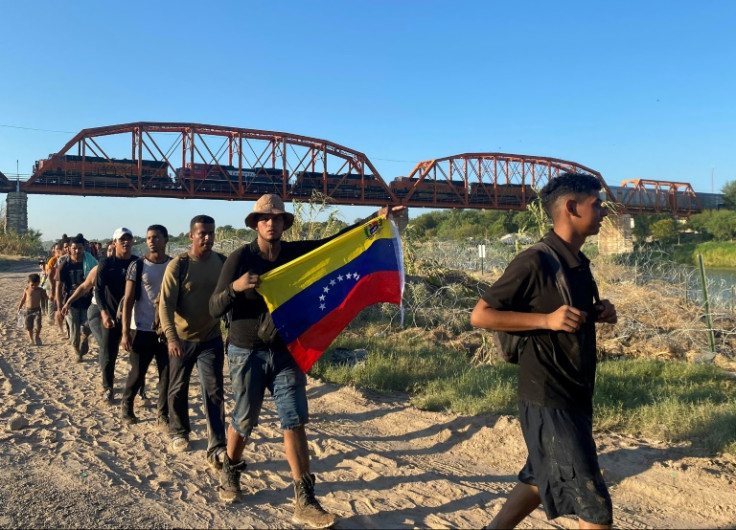
MIAMI - The political turmoil in Venezuela has reached a new boiling point, propelling a fresh wave of migrants to leave the country, seeking refuge in neighboring countries and beyond as the Nicolás Maduro government ramps up repression following the electoral fallout.
Two families, who asked the Latin Times not to be identified, shared their harrowing journey from Venezuela to Colombia. They arrived in the border city of Cucuta on Tuesday afternoon after voting, having driven eight hours. To avoid being stopped by border authorities, they had to traverse illegal paths, constantly looking over their shoulders. Their fear was palpable, as crossing the border without incident seemed like an impossible feat.
In Miami, two protestors at an anti-Maduro rally recounted their escape. Both left Venezuela on Monday, taking connecting flights as there are no direct flights from Venezuela to the USA. Although they hold American visas, they know many others who are planning to leave the country illegally if Maduro remains in power. "I want to come back, but not if they (the chavistas) don't leave the government," said a 25 year-old nurse who asked not to be identified.
The regime has broken diplomatic relationships with the Dominican Republic and Panama, two of the countries with more connecting flights to Venezuela. They are not the only ones. The diplomatic crisis has also included Chile, Perú, Argentina and more.
An exodus propelled by fear
The controversial election, where the opposition claims to have substantial proof of their victory, has been a catalyst for what analysts fear it would be a new mass exodus. Maduro's refusal to acknowledge the opposition's claims has created an international political crisis, exacerbating the already dire situation within the country.

Since Nicolás Maduro took power in 2013, more than 7.7 million Venezuelans have left their homeland, according to the UN. Most refugees and migrants from Venezuela arriving in neighboring countries are families with children, pregnant women, elderly people, and people with disabilities.
Many are facing poverty and struggling to get by, according to the latest needs assessment carried out by UNHCR and partners from the Regional Inter-Agency Coordination Platform for Refugees and Migrants from Venezuela (R4V).

Recent surveys reveal that this number could surge dramatically. According to Consultores ORC, 18% of Venezuelan adults who remain in the country—over 4 million people—are considering leaving if Maduro remains in power. Another survey by Meganálisis from last April indicated that a staggering 44.6% of Venezuela's 25 million adults might migrate under the same conditions.
This translates to more than 11 million potential migrants.
Venezuelans on social media have reported an increase in government repression against opposition supporters and fear a return to shortages of medicines and food. They also cite concerns about a potential economic contraction, and the effect to possible sanctions from foreign governments as the main reasons for considering leaving the country.
Where are the Venezuelan migrants?
The Venezuelan diaspora is vast and widespread. Research shows that significant numbers of Venezuelans are living abroad. Official numbers put 75% in Latin America, with 1,7 million in Colombia, 941,889 in Perú, and 523,553 in Chile. Also more than half a million Venezuelan live in the U.S. and the same amount in Spain.
The influx of Venezuelan refugees has strained resources and created challenges for host countries, impacting regional stability and economies.

In the United States, laws designed to assist Venezuelan refugees have been in flux. While there have been efforts to offer Temporary Protected Status (TPS) to Venezuelans, providing them with legal residence and work authorization, these measures were halted last week.
The growing exodus from Venezuela is not just a humanitarian crisis but a significant geopolitical issue. Countries in the region are grappling with the influx of refugees, while international bodies are calling for more robust responses to address the root causes of the crisis.
© 2024 Latin Times. All rights reserved. Do not reproduce without permission.







